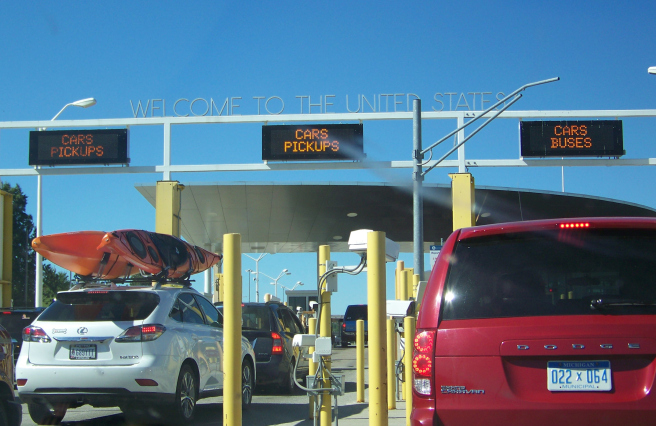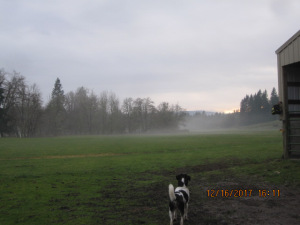 Have you ever taken the time to read your passport?
Have you ever taken the time to read your passport?
I hadn’t — not until today, when on a whim I checked its expiration date, and was struck by the fact that there are so few visa stamps on its pages.
I remember my first passport! Its pages were nearly filled with stamps before its expiration date rolled around, and it was only valid for three years if I remember correctly. Today, I am happy to report, I have several more years of traveling left before I have to think about a renewal.
But, sadly, I doubt that those pages will be nowhere near as colorful nor evocative of adventure as my original passport’s were. The world’s borders have, in many cases, been erased over the preceding decades.
In the past two years or so, I have set foot on three continents, visited several island nations and spent time in a score of different nations. I have nary a passport stamp to show for the miles, save one from Amsterdam Shiphol, earned because of a plane change that entailed only a leisurely stroll from one airline gate to another!
TravelingCustoms and immigration agents are not nearly as concerned about stamping a page as they once were. After all, all the information now needed is computerized and captured by security cameras! How comforting.
How disappointing! As the world shrinks and becomes more homogeneous, does it become less interesting?
There is something about crossing national borders that was once thrilling and unique.
I always found it exciting to arrive at a national border, even while crossing on a train in the middle of the night; I did not resent the delay, nor the inconvenience. Instead, it seemed a rite of passage, a confirmation that I was about to embark on another venture that would broaden my understanding and fill my journal with memories.
I cannot adequately express the disappointment I felt when I first drove across the border between Italy and France with nary a road sign to note the occasion. It was only when I stopped for coffee that it became obvious: café rather than caffè.
I still have not reconciled euros with traveling through vastly different European nations; I found it refreshing last October when prices in Croatia were quoted in Kuna, the local currency, even though the Euro is accepted and residents seem to have little trouble with the exchange rate!
But I digress . . .I checked my passport’s expiration date because of upcoming foreign travel plans, but passports are in the news for another reason as well. Residents of some states may soon be required to show better identification than a local driver’s license in order to fly even domestically. Today, only slightly more than one third of Americans possess a passport. But that may change, as soon as January.
American passports are little gems of home-grown philosophy. As one turns the pages, the boundless pride and enthusiasm of a country full of optimism seem evident — through stylized graphics of distinctly American scenery and the quotations that appear at the top of each double truck, passports express what is, somehow, the essence of American pride and determination.
A sampling: Pages 16 and 17 depict a paddlewheeler making its way along a mighty river; I’m guessing the artist had the Mississippi in mind. A formation of geese fly overhead, and homes and hills stretch out in the distance.
The written words:
“This is a new nation, based on a mighty continent, of boundless possibilities.” Theodore Roosevelt
There are other drawings and words of note in this little book that offers me the opportunity to freely travel the world, both in my mind and in reality:
“We have a great dream. It started way back in 1776, and God grant that America will be true to her dream.” Martin Luther King, Jr.
“Let us raise a standard to which the wise and honest can repair.” George Washington
John F. Kennedy: “Let every nation know, whether it wishes us well or ill, that we shall pay any price, bear any burden, meet any hardship, support any friend, oppose any foe, in order to assure the survival and the success of liberty.”
Dwight D. Eisenhower: “Whatever America hopes to bring to pass in the world must first come to pass in the heart of America.”
The stuff of dreams:It’s not only the words of leaders and presidents that speak from passport pages, though.
The words inscribed in 1869 on the original Golden Spike at Promontory Summit, in Utah, echo through time: “May God continue the unity of our country as the railroad unites the two great oceans of the world.”
And, then:
“Every generation has the obligation to free men’s minds for a look at new worlds . . . to look out from a higher plateau than the last generation.” Ellison Onizuka.
This is the final page of the little blue book, along with a stylized depiction of two worlds together in vast space, along with a circling manmade satellite.
If you don’t know him, Onizuka was an American astronaut aboard the Space Shuttle Challenger when it exploded in 1986. He dreamed bigger and traveled farther than most.
As Americans, we have always enjoyed the ability to cross state borders without worrying about foreign currency, unfamiliar signage or a different language. If a passport becomes required to do that, it will be a new experience for many of our citizens, but it will not change our ability to travel freely in this country.
Across the globe, it was not so until just recently. It still is not the norm in many parts of the world.
Take the time to read that little book, and to think about the implications. It offers a new perspective on the world, whether it’s full of visas and border crossing stamps or not.
Share this:





